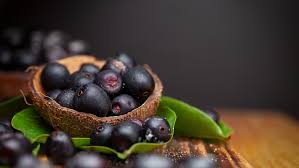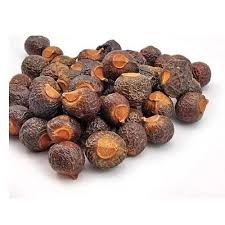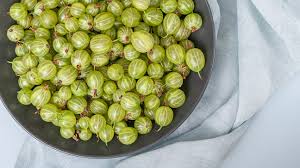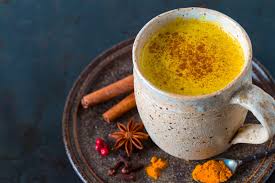
Babchi Seed for Treating Vitiligo & White Patches
Vitiligo, a condition marked by the loss of skin pigmentation, often leads to white patches that can affect one’s confidence and self-esteem. In Ayurveda, natural remedies are deeply rooted in centuries-old healing traditions, offering holistic approaches to such skin issues. One such powerful herbal remedy is Babchi Seed (Psoralea corylifolia). Known for its remarkable properties in stimulating melanin production, Babchi seed has gained recognition for treating vitiligo and white patches effectively and naturally. At Dirghaanshi, we explore the time-tested benefits of this potent jadi buti and how it contributes to skin pigmentation restoration in a safe, holistic way.
Long Description
What is Babchi Seed?
Babchi, scientifically known as Psoralea corylifolia, is an Ayurvedic herb that has been widely used in traditional Indian and Chinese medicine for treating various skin disorders. Its seeds and oil are rich in psoralen, a compound known to enhance skin pigmentation and stimulate melanin synthesis in the skin. This makes it a trusted herb for managing vitiligo (leucoderma) and other hypopigmented skin conditions.
Ayurvedic Perspective on Vitiligo
According to Ayurveda, vitiligo is referred to as “Shwitra” and is considered a Tridoshic imbalance—primarily involving Pitta dosha. Imbalance in Pitta leads to impaired melanin production, resulting in white patches. Herbs like Babchi, which possess tikta (bitter) and ushna (heating) properties, help correct the Pitta imbalance and promote skin pigmentation naturally.
How Babchi Seed Helps in Treating Vitiligo
Here are the core ways in which Babchi seed supports the treatment of white patches:
1. Stimulates Melanin Production
Babchi contains psoralen, which, when exposed to sunlight or UV light, helps the skin produce melanin—the pigment responsible for skin color. This effect can help reduce the appearance of white patches.
2. Anti-inflammatory and Antioxidant Properties
Its strong antioxidant profile helps in protecting skin cells from oxidative stress, a major cause of skin damage. Babchi also reduces inflammation in affected areas, encouraging healthy skin regeneration.
3. Antimicrobial Action
Babchi has natural antibacterial and antifungal properties, which help prevent infections that might worsen skin conditions like vitiligo.
4. Balances Doshas
Babchi aids in balancing Pitta and Kapha doshas, which play a key role in skin health according to Ayurveda.
How to Use Babchi for Vitiligo
Note: Always perform a patch test and consult a qualified Ayurvedic practitioner before beginning any herbal treatment.
1. Babchi Seed Oil Application
- Extract oil from Babchi seeds or buy pure Babchi oil.
- Apply directly to affected white patches once daily.
- Expose the area to sunlight for 10–15 minutes (not more).
- Over time, pigmentation may start returning.
2. Babchi Powder with Carrier Oils
- Mix Babchi powder with coconut or mustard oil.
- Apply gently on the white patches.
- Let it absorb and wash after a few hours.
3. Babchi Infused Bath
- Add Babchi seed powder or oil to warm bathwater.
- Soak the affected area for 15–20 minutes regularly.
4. Herbal Blends
Combine Babchi with supportive herbs like:
- Manjistha – for blood purification.
- Neem – for anti-inflammatory support.
- Haritaki – to boost detox and digestion, which indirectly supports skin health.
Precautions While Using Babchi
- Avoid overexposure to sunlight post-application.
- Monitor skin for any irritation or redness.
- Do not ingest raw Babchi seeds without professional advice.
- Always source organic and chemical-free Babchi seeds or oil.
Lifestyle Tips to Support Vitiligo Treatment
- Follow a Pitta-pacifying diet—avoid spicy, acidic, or fermented foods.
- Practice stress management techniques like meditation and yoga.
- Keep your digestive system clean with Triphala and hydrating herbal teas.
- Stay hydrated and consume antioxidant-rich foods like amla, turmeric, and leafy greens.
Why Dirghaanshi Recommends Babchi Seed
At Dirghaanshi, we believe in the power of traditional herbs backed by both ancient wisdom and modern insights. Babchi seed’s ability to treat vitiligo is not just anecdotal but supported by its proven biological effects on pigmentation. It’s a safe, natural, and chemical-free option for those looking to restore their skin’s beauty and health.
Conclusion
Vitiligo may not have a permanent cure, but with consistent use of Babchi seed, you can experience visible improvements in skin tone, reduced white patches, and enhanced confidence. Embracing Ayurveda’s holistic approach allows the body to heal from within. If you’re on a journey to restore your skin’s natural beauty, Babchi seed might just be the ancient remedy you were looking for.













